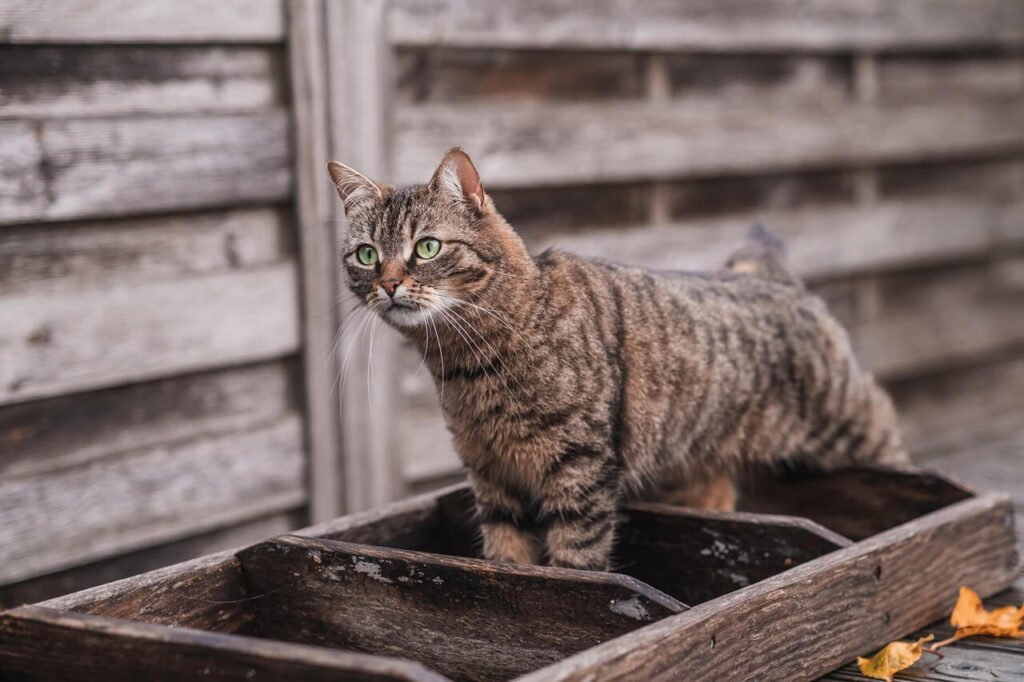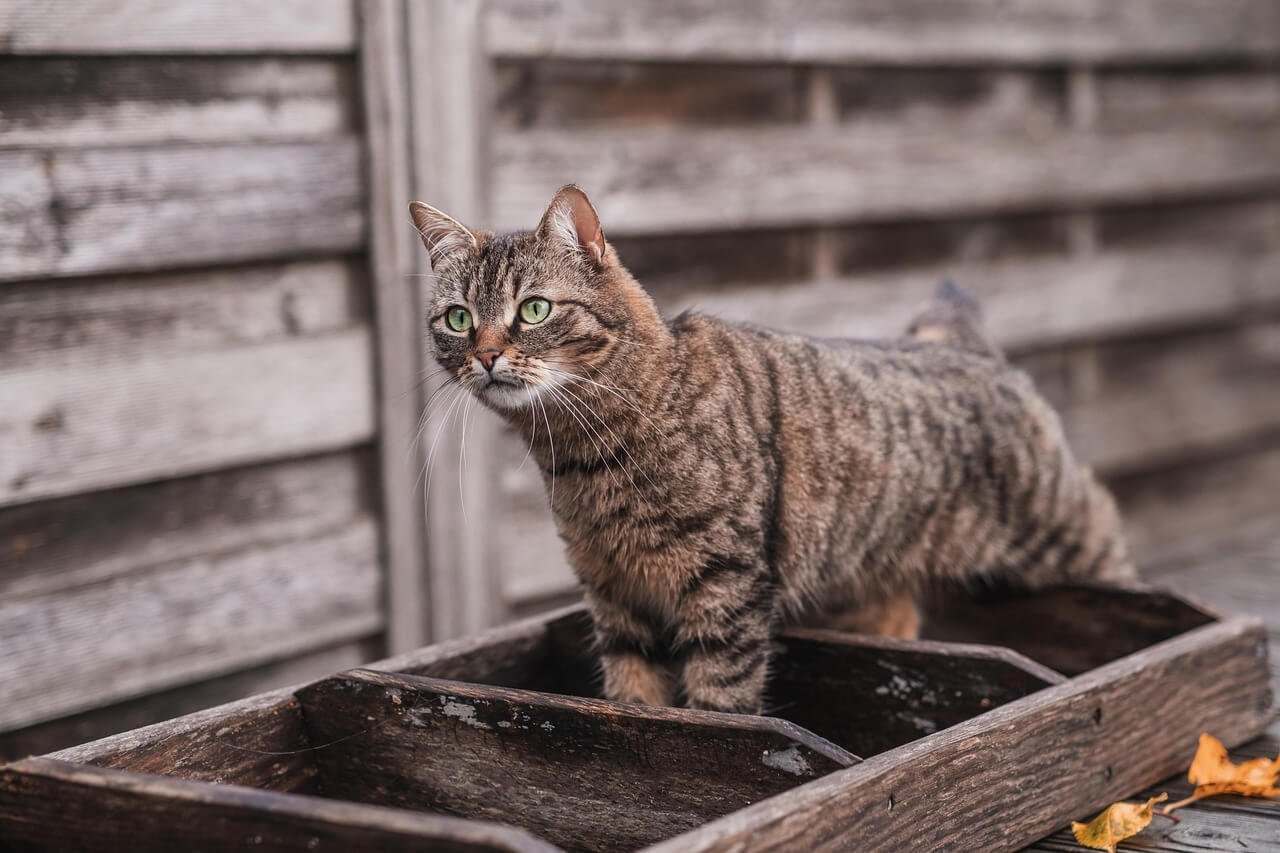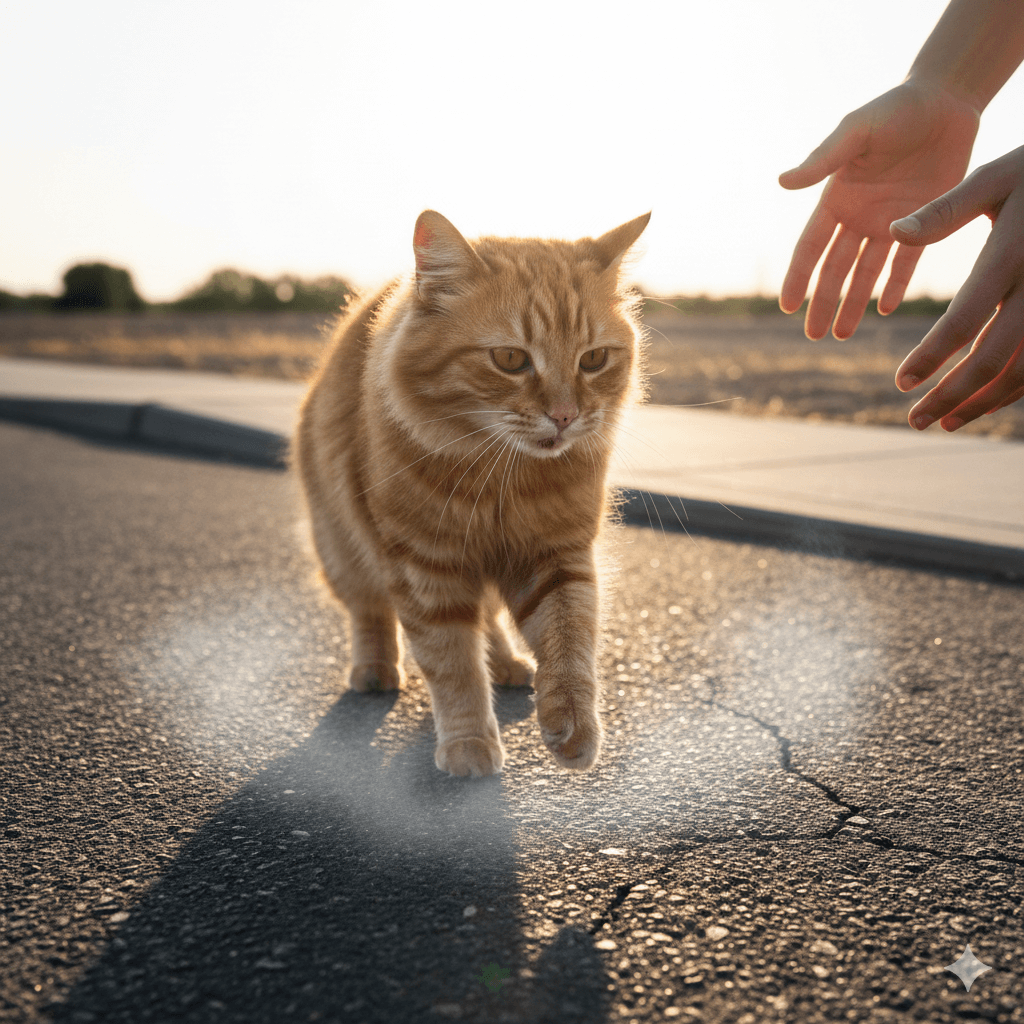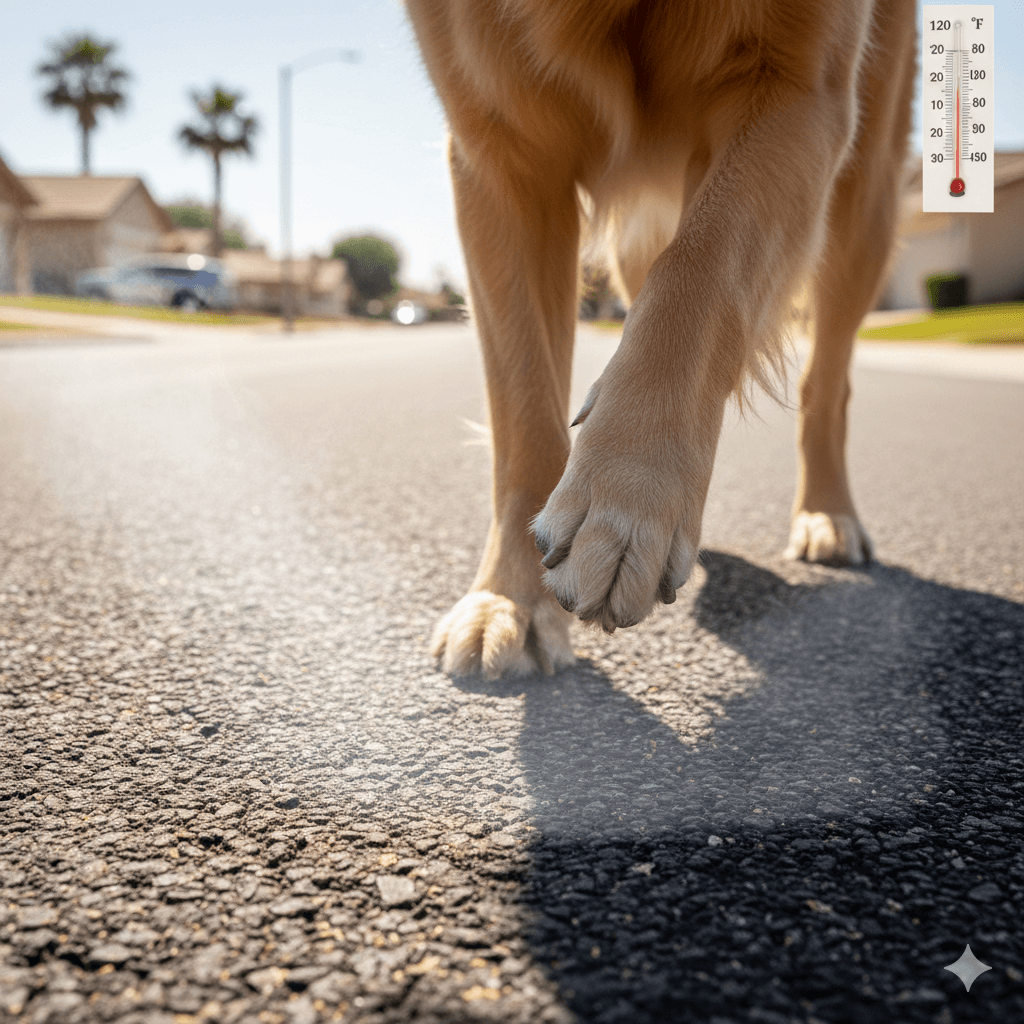How Far Can Cats Smell Food? Unraveling Their Incredible Sense of Smell
Cats are known for their independence, agility, and mysterious behavior, but one of their most fascinating traits is their sense of smell. Have you ever wondered how far cats can smell food? Whether it’s the aroma of a freshly opened can of tuna or the subtle scent of kibble from across the room, a cat’s nose is a powerful tool that guides much of their behavior. In this blog post, we’ll explore the science behind a cat’s sense of smell, how far they can detect food, and what this means for their daily lives. By understanding their olfactory abilities, you can better appreciate your feline friend’s unique perspective on the world.
The Science Behind a Cat’s Sense of Smell
A cat’s sense of smell is far more advanced than that of humans, thanks to their specialized anatomy and biology. This heightened ability plays a crucial role in how they interact with their environment, especially when it comes to food. Here’s what makes their sense of smell so remarkable:
More Olfactory Receptors
Cats have approximately 200 million olfactory receptors in their noses, compared to just 5 million in humans. This allows them to detect scents with incredible precision.Jacobson’s Organ
Also known as the vomeronasal organ, this structure enhances a cat’s ability to detect pheromones and subtle food odors.Highly Sensitive Nasal Passages
Their nasal passages are designed to trap and analyze scent molecules, making their sense of smell far more acute than ours.Strong Connection to Memory
Scents are closely tied to a cat’s memory, helping them recognize familiar foods or recall past experiences.Role in Survival
In the wild, a keen sense of smell helps cats locate prey, identify edible food, and avoid potential dangers.
These biological features explain why cats are such skilled sniffers. Their sense of smell is not just about finding food—it’s a vital part of their survival and well-being.
Factors That Influence How Far Cats Can Smell Food
The distance a cat can smell food depends on several factors, including environmental conditions and the type of food. Understanding these variables can help you anticipate your cat’s reactions to different scents. Here’s a breakdown of the key influences:
Strength of the Food’s Aroma
Strong-smelling foods like fish or meat are easier for cats to detect from a greater distance than milder options like dry kibble.Airflow and Ventilation
Scent molecules travel farther in open, well-ventilated spaces, allowing cats to pick up smells from a greater distance.Temperature of the Food
Warm food releases more scent molecules, making it easier for cats to detect compared to cold or room-temperature items.Obstructions in the Environment
Walls, furniture, or closed doors can block scent particles, limiting how far a cat can smell food.Individual Differences
Each cat’s sense of smell varies based on age, health, and breed, which can affect their ability to detect scents.
By considering these factors, you can better understand why your cat might react differently to various food smells. Their olfactory range is as dynamic as their personalities!
Check this guide 👉Why Does My Cat Smell Bad? Best 7 Expert Tips!
Check this guide 👉Why Does My Cat Smell So Good? Best 7 Expert Tips!

Factors That Enhance Smell Detection | Foods Cats Can Smell Easily |
|---|---|
Strong food aromas | Fresh fish |
Warm temperatures | Cooked chicken |
Open, ventilated spaces | Wet cat food |
No physical obstructions | Canned tuna |
Healthy olfactory system | Meat-based treats |
How Cats Use Their Sense of Smell Around Food
A cat’s sense of smell isn’t just about detecting food—it also influences their behavior and decision-making around mealtime. Here’s how their olfactory abilities play a role in their daily interactions with food:
Identifying Safe Food
Cats rely on their sense of smell to determine whether food is fresh and safe to eat, avoiding spoiled or dangerous items.Locating Hidden Treats
Even if food is tucked away in a cabinet or behind a door, a cat’s nose can often lead them straight to it.Choosing Preferred Flavors
Cats use their sense of smell to decide which foods they prefer, often gravitating toward stronger, more appealing aromas.Recognizing Familiar Scents
Familiar food smells provide comfort and reassurance, especially in new or stressful environments.Communicating Through Scent
Cats may rub their faces near food bowls to mark them with their scent, creating a sense of ownership and security.
Understanding these behaviors highlights the importance of scent in a cat’s life. Their noses are truly their guide to the world of food.
Tips for Enhancing Your Cat’s Food Experience Through Smell
As a cat owner, you can use your knowledge of their sense of smell to make mealtime more enjoyable and satisfying. Here are some tips to enhance their food experience:
Serve Warm Food
Gently warming wet food can release more aroma, making it more enticing for your cat.Choose Strong-Smelling Options
Opt for foods with bold, natural scents, such as fish or poultry-based recipes, to capture your cat’s attention.Avoid Overpowering Artificial Scents
Steer clear of foods with artificial additives that might overwhelm or confuse your cat’s sensitive nose.Keep Food Fresh
Always store food in airtight containers to preserve its natural aroma and prevent spoilage.Experiment with Placement
Try placing food in different areas of your home to see how your cat reacts to varying scent distributions.
By catering to your cat’s sense of smell, you can create a more engaging and satisfying dining experience for them.
How Cats Use Smell to Communicate Beyond Food
A cat’s sense of smell isn’t just about finding food—it’s a key tool for communication. Cats rely on scent to interact with their environment, other animals, and even their owners. Here’s how their olfactory abilities extend beyond the dinner plate:
Marking Territory
Cats use scent glands on their face, paws, and tail to mark objects, signaling ownership or familiarity to other cats.Identifying Friends and Foes
By sniffing other animals or people, cats can determine whether they’re familiar or potentially threatening.Bonding Through Scent
Cats often rub against their owners to leave their scent, creating a shared bond and sense of security.Detecting Changes in Health
Cats can pick up on subtle changes in the scent of other animals or humans, sometimes alerting them to illnesses or stress.Recognizing Safe Spaces
Familiar scents help cats feel safe and comfortable, especially in new or unfamiliar environments.
Understanding these behaviors highlights the depth of a cat’s reliance on their sense of smell. It’s not just about survival—it’s about connection and comfort.
Fun Facts About Cats’ Sense of Smell
Cats’ olfactory abilities are full of surprises that make them even more fascinating. Here are some fun facts about their sense of smell that might leave you in awe:
They Can Detect Pheromones
Cats can smell pheromones, chemical signals that convey emotions or intentions, helping them understand social cues.Their Sense of Smell is 14 Times Stronger Than Humans’
This incredible sensitivity allows them to detect scents that are completely imperceptible to us.Kittens Use Smell to Find Their Mother
Newborn kittens rely heavily on their sense of smell to locate their mother and littermates before their eyes fully open.Scent Helps Them Navigate
Cats use scent markers in their environment to create mental maps, helping them navigate familiar spaces.They Can Smell Fear or Stress
Cats can detect hormonal changes in humans or other animals, often reacting to signs of fear or anxiety.
These fun facts underscore just how incredible a cat’s sense of smell truly is. Their noses are not only powerful but also deeply intertwined with their daily lives.
Common Mistakes Cat Owners Make Regarding Smell
While understanding a cat’s sense of smell can enhance their care, there are common mistakes that cat owners make that may inadvertently affect their pet’s experience. Here’s what to avoid:
Using Strong Cleaning Products
Harsh chemicals can overwhelm a cat’s sensitive nose, causing stress or discomfort in their environment.Overusing Air Fresheners
Artificial scents can mask important smells that cats rely on to feel secure, disrupting their sense of familiarity.Ignoring Food Preferences
Offering bland or unappealing-smelling food may lead to picky eating or reduced appetite in cats.Not Cleaning Food Bowls Properly
Residual odors from old food can deter cats from eating, as they prefer fresh, clean surfaces.Blocking Access to Scent Exploration
Restricting access to areas where cats explore scents can limit their ability to engage with their surroundings naturally.
Avoiding these mistakes can help create a more harmonious environment for your cat. By respecting their sense of smell, you allow them to thrive both physically and emotionally.
Frequently Asked Questions About Cats and Their Sense of Smell
How far can cats smell food?
Cats can detect food smells from several feet away, depending on the strength of the aroma and environmental conditions.
Can cats smell food through closed containers?
While cats can detect strong food odors through some materials, airtight containers typically block scent molecules effectively.
Why does my cat sniff food before eating it?
Sniffing helps cats assess the food’s safety, freshness, and appeal before consuming it.
Do older cats lose their sense of smell?
Yes, a cat’s sense of smell may decline with age, potentially affecting their appetite and food preferences.
Can I train my cat to follow food smells?
Yes, cats can be encouraged to follow food scents during play or training sessions, though patience is key.
Celebrating the Power of a Cat’s Nose
A cat’s sense of smell is nothing short of extraordinary, playing a pivotal role in how they navigate the world—and their food. From detecting the faintest whiff of tuna to recognizing familiar scents that bring them comfort, their noses are an essential part of their daily lives. By understanding how far cats can smell food and what influences their olfactory abilities, you can deepen your bond with your feline companion and ensure they enjoy every mealtime to the fullest. So, the next time you open a can of cat food, take a moment to marvel at the incredible power of your cat’s nose—it’s truly a wonder of nature.
Newfoundland Dog Personality: Best 7 Expert Tips! – Discover the gentle, loyal, and protective nature of this giant breed perfect for families.
Can Hot Pavement Burn Your Cats Paws? Best 7 Expert Tips! – Learn how to protect your cat’s paws from hot surfaces and prevent painful burns this summer.
Can Hot Pavement Burn Your Dogs Paws? Best 7 Expert Tips! – Learn how to protect your dog’s paws from hot surfaces and ensure safe summer walks.
Irish Wolfhound Size: Best 7 Expert Tips! – Discover the ideal height, weight, and care tips for this majestic giant breed. Learn how to manage their impressive stature responsibly.





